An honorable democracy movement that held its head high for many decades now falls to Beijing’s heavy hand after U.S. meddling.
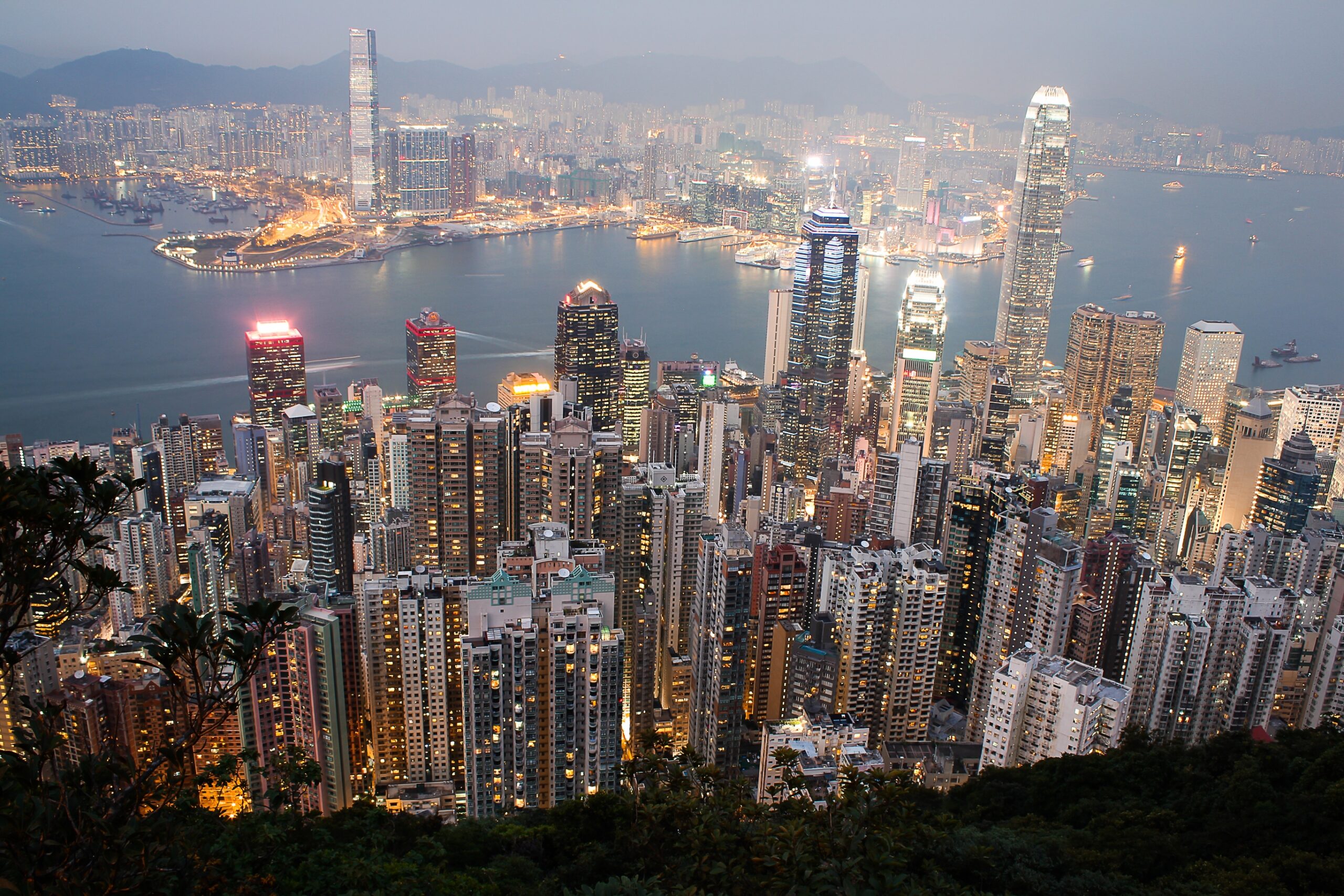
Southern Kowloon and Victoria, Hong Kong, 2014. (Estial, CC BY-SA 4.0, Wikimedia Commons)
By Patrick Lawrence
Special to Consortium News
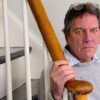 Midway in a week of shocking news, I awakened last Wednesday to a piece in Asia Sentinel that made my heart sink lower than everything else I had read by then. Our apple-pie authoritarianism, now manifest in a frenzy of censorship, is frightening enough. What is going on in Hong Kong is magnitudes worse.
Midway in a week of shocking news, I awakened last Wednesday to a piece in Asia Sentinel that made my heart sink lower than everything else I had read by then. Our apple-pie authoritarianism, now manifest in a frenzy of censorship, is frightening enough. What is going on in Hong Kong is magnitudes worse.
An honorable democracy movement that held its head high for many decades now falls to Beijing’s heavy hand. Six months after China imposed a Draconian, vaguely worded National Security Law on the former British colony, we now read of mass arrests and imminent charges of sedition.
As of last week, this goes well beyond window-smashing student protesters swept up in street demonstrations. Elected legislators, professors, and other professionals are now being detained to face trials and potential prison terms. If this is not the end of Hong Kong’s principled quest for a democratic future, it begins to look awfully like it.
The worst of this tragedy — the very worst — lies in the bitter reality that cynical, covert American meddling in pursuit of another “color revolution” has made a mess of a once-admirable campaign and left China, which has fretted over its territorial integrity for millennia, little choice but to intervene.
Please Contribute to Consortium
News‘ Winter Fund Drive
The Sentinel, an always-informative online journal that publishes in Hong Kong, reported last Wednesday that the Hong Kong authorities had overnight arrested 53 opposition legislators and political activists for “subverting state power,” as a police spokesman put it. Among these was Claudia Mo, one of the pro-democracy members of the Legislative Council who recently resigned en masse to protest the National Security Law and its vigorous enforcement since it was enacted last June.
All but one of those arrested last week were subsequently released on bail. But on Sunday, more bad news. From the Sentinel :
Most of the 53 people arrested in Hong Kong on Jan. 6 are likely to be re-arrested and charged under the National Security Law, with some expected to be sentenced to prison, according to a well-wired Hong Kong-based risk consultant. All have had their passports seized to prevent them from leaving the territory.
Some background here. Mo was an Agence France–Presse correspondent before going into politics and is married to Philip Bowring. Bowring, long the most distinguished journalist active in Asia, co-founded Asia Sentinel after editing the sadly defunct Far Eastern Economic Review. Hong Kong authorities have confiscated Mo’s and Bowring’s computers, though the latter was not arrested.
In observance of transparency, Claudia Mo and Philip Bowring are friends of many years. The thought that one of them may now go to prison and the other prevented from practicing his craft is an ending to the Hong Kong democracy story that no one who knows the story could possibly have imagined even a few years ago.
40-Year Roots
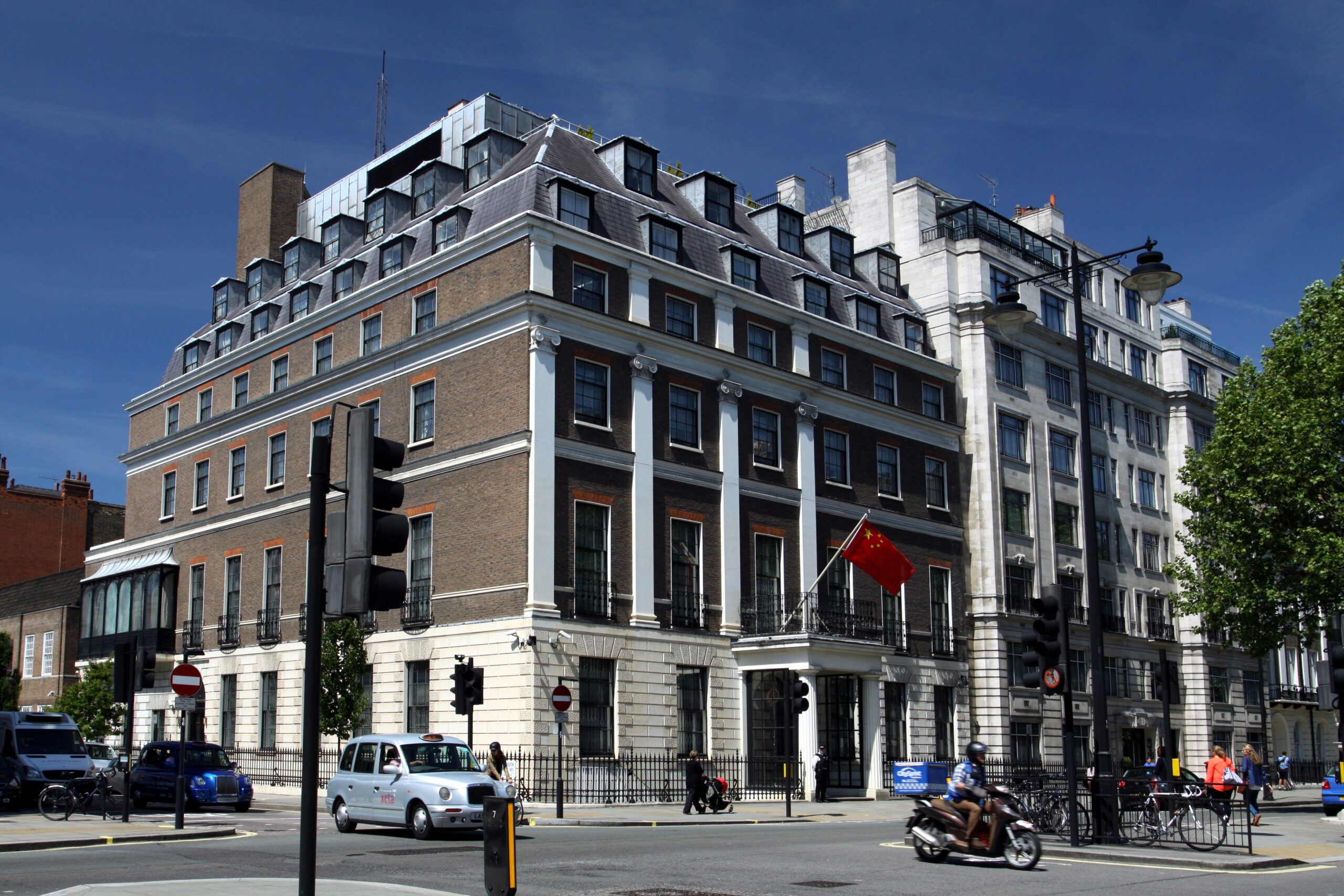
Chinese embassy in London, 2013. (Chmee2, CC BY-SA 3.0, Wikimedia Commons)
Hong Kong’s democracy movement has its roots in the early 1980s, when Beijing and London were negotiating what became the Sino–British Declaration, which set the terms for Hong Kong’s status as a Special Administrative Region (with a high degree of autonomy) for 50 years after the territory reverted to Chinese sovereignty in 1997.
I knew the story intimately, having reported it for several years for The Christian Science Monitor and subsequently for the International Herald Tribune. The integrity and passion of those leading the movement were authentic and beyond doubt. So was their intelligent assessment of the chessboard across from which sat those Beijing officials charged with managing relations with a territory that had become a matter of considerable sensitivity after the 1997 handover.
Hong Kong had developed an identity of its own by then — a point the Chinese missed. The British either missed it or were indifferent to it, and I was never quite certain which. But there was no question of independence then, so far as I could discern. The project was to achieve self-determination within the bounds of the Sino–British accord and the constitution it included, known as the Basic Law. With the Dengist reforms gathering momentum on the mainland at the time, this was broadly accepted as a legitimate aspiration.
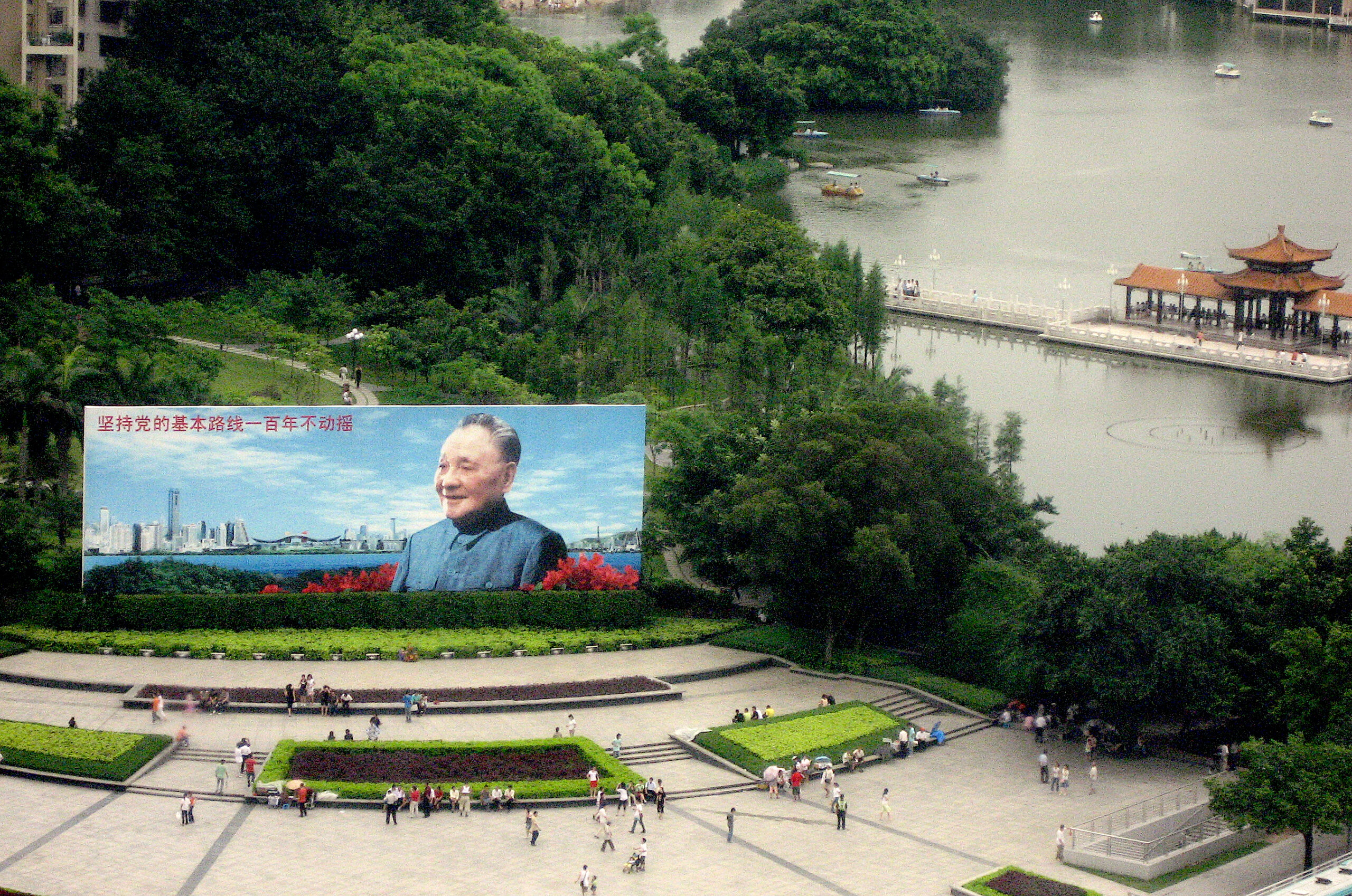
Deng Xiaoping billboard in Lizhi Park, Shenzhen, one of the first special economic zones and regarded as China’s Silicon Valley. (Brücke-Osteuropa, Wikimedia Commons)
Just when the complexion and tilt of the movement began to change is a very good question, and there may be no precise answer. But we have a good clue. In 2012 the National Democratic Institute (NDI), which functions as a subsidiary of the U.S. National Endowment for Democracy (NED), began funding “civil society” projects in Hong Kong. These expenditures, underwritten by the NED, reportedly came to nearly $500,000 yearly, a figure I cannot confirm but have no reason to doubt.
The NED, funded by an annual grant from Congress, is well-known for its destabilization programs abroad by way of its support for various “civil society” groups and nongovernmental organizations opportunistically open to covert American interventions.
It was notably active in various of the “color revolutions” in nations previously in the Soviet orbit: Georgia (rose, 2003), Ukraine (orange, 2004), Kyrgyzstan (tulip, 2005). The NED was founded in 1983, when the national security state determined to shift the coup function from the Central Intelligence Agency to the cover of “democratization” campaigns that gave a prettier appearance, as The Washington Post‘s David Ignatius explictly spelled out in 1991.

Young woman attaches flowers to riot police officers’ shields during 2004 Orange Revolution in Kiev. (jf1234, CC BY-SA 2.0, Wikimedia Commons)
As to the NDI , it is chock-a-block with interventionists in the liberal mode. It is chaired by none other than Madeleine Albright, the former secretary of state and a faithful apostle of American aggressions. On its board are Denis McDonough, Barack Obama’s deputy national security adviser and later chief of staff; Barbara Mikulski, the former Maryland senator, and Suzy George, chief of staff on Obama’s National Security Council. Let there be no doubt as to the importance the Democratic elite attaches to this group and its activities.
The NDI was also founded in 1983 and has been increasingly active in Hong Kong since the handover. It is the usual menu: The institute has cultivated dense contacts with political parties, the universities, the media, and the civil-society scene “to discuss the political environment in Hong Kong,” as one of its reports explains.
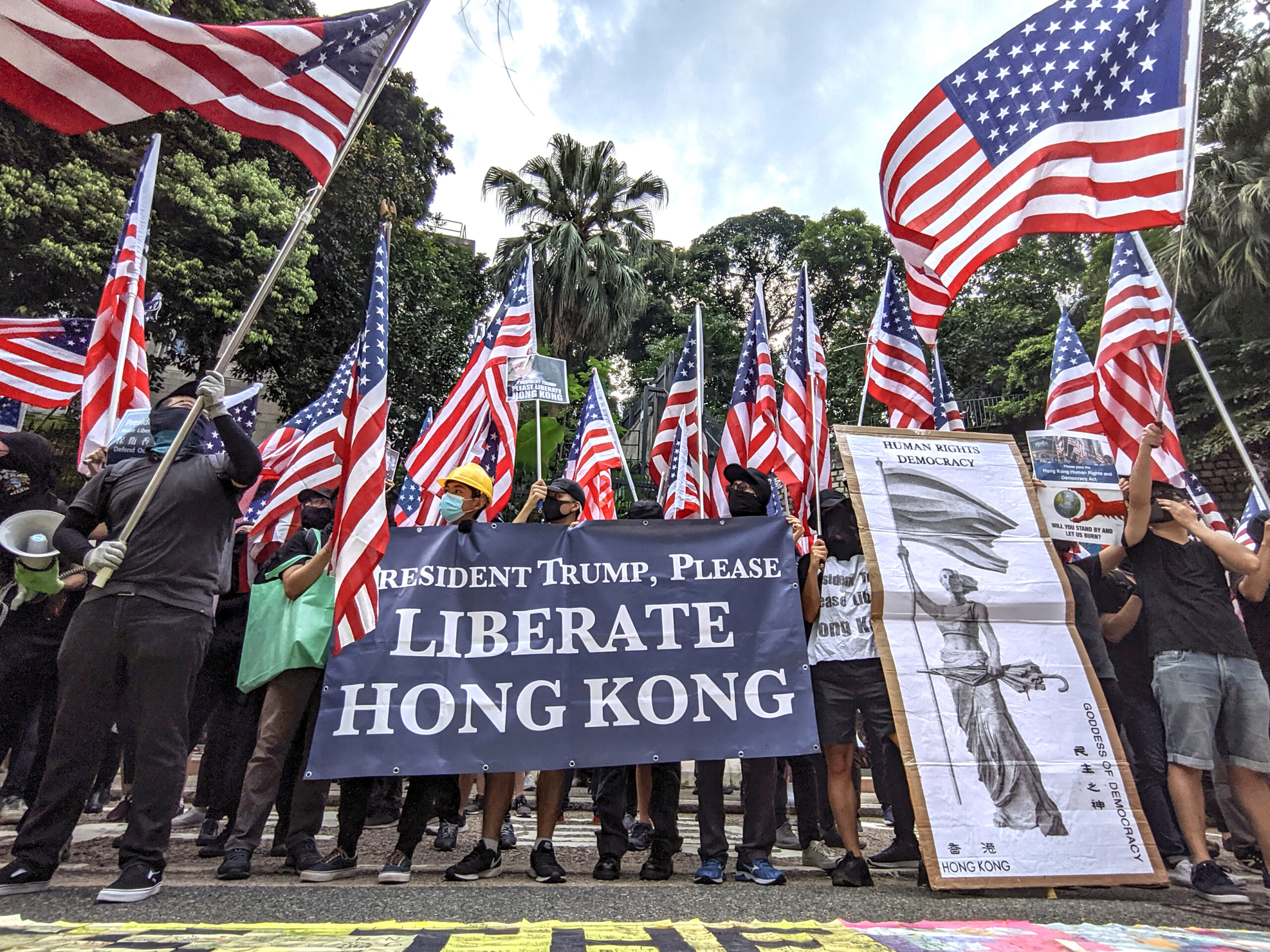
Hong Kong protesters with U.S. flags, September 2019. (Studio Incendo, CC BY 2.0, Wikimedia Commons)
Two years after the NDI began funneling funds into Hong Kong, the Occupy Central movement shut down the business and financial district. Then the NED stepped in and began to support various Hong Kong groups directly. This figure is a matter of record. The NED spent upward of $1.8 million on civil society groups in Hong Kong from 2017 to 2020.
This is very unlikely to be the full picture of Washington’s doings in Hong Kong. But of what we know, where did all this money go? The NDI has reportedly supported the Confederation of Trade Unions, the Hong Kong Journalists Association, and the Civic, Labor, and Democratic parties.
NDI documents also indicate it has taken an abiding interest over many years with various pro-democracy groups associated with the recent unrest, including Scholarism and Demosisto, both of which were founded by Joshua Wong, the celebrated activist. Scholarism disbanded in 2016; Demosisto did so a few hours after the national security law was promulgated last June.
Worthy & Stupid
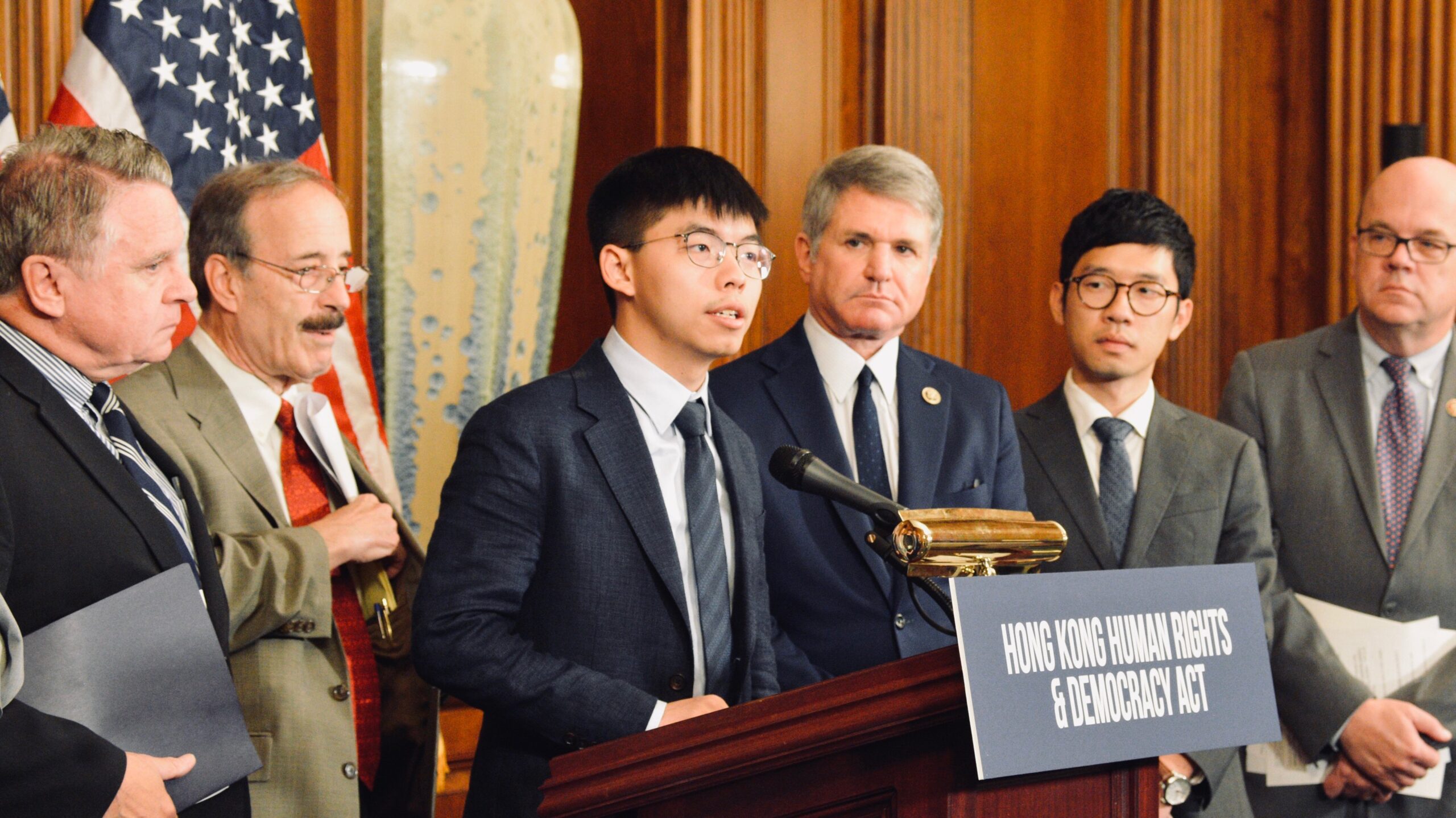
Joshua Wong speaks at the United States Capitol in 2019. (House Foreign Affairs Committee, Wikimedia Commons)
I count those in Hong Kong who accepted funds from Washington’s two coup-cultivating organizations traitors to a worthy cause. However well-intentioned, I also count them stupid, tactically and strategically. Did they think the Chinese would remain unaware of or indifferent to their connections with the NDI and NED?
Did Joshua Wong, all of 23 at the time, think it wise to meet with Julie Eadeh, a political officer from the U.S. Consulate, and later testify on the Hong Kong question before Congress? Did Jimmy Lai, the anti–Beijing newspaper publisher, think it nifty to meet with Vice–President Mike Pence and the crazily anti–Chinese Mike Pompeo, secretary of state at the time?
The Americans, if this is not already evident, do not give a tinker’s damn about democracy in Hong Kong — or anywhere else they intervene in democracy’s name, for that matter. They wanted a provocative geopolitical incident on China’s southern flank and they got one. Did the activists with too much influence and too little experience miss this?
What breathtaking miscalculations.
These people ought to have held to first principles and told the Americans: This is our movement and our fight. We will wage it while guarding our independence and take no interest in your machinations. Instead, they gave Beijing just the cause it needed to intervene and are now responsible for Claudia Mo and numerous others facing trials and imprisonment.
Some people following the Hong Kong story know all about its fine, uncorrupted beginnings but not the tragic errors of recent years and the American subterfuge. (I was among these for a time, refusing to believe the early reports.) Others, having too little of the history, know all about the tragic errors and subterfuge but nothing of the fine beginnings.
No matter now, I suppose. Good people may now be headed for prison, having been let down by others too young to know what they are doing or too unsophisticated to navigate treacherous waters to the best-possible outcome.
It is done. It is a shame and did not have to be.
Footnote: We lost two great correspondents in recent weeks. Tak Oka, a long-serving Tokyo correspondent for The Christian Science Monitor and a wonderful man to all who knew him, died Dec, 2. Neil Sheehan, who reported Vietnam honorably for UPI and The New York Times and later broke the Pentagon Papers story, left us Jan. 7 . They don’t make them like this anymore.
Patrick Lawrence, a correspondent abroad for many years, chiefly for the International Herald Tribune, is a columnist, essayist, author and lecturer. His most recent book is Time No Longer: Americans After the American Century. Follow him on Twitter @thefloutist. His web site is Patrick Lawrence. Support his work via his Patreon site.
The views expressed are solely those of the author and may or may not reflect those of Consortium News.
Contribute to Consortium
News‘ Winter Fund Drive



The author was spot on when he cited the many years of CIA-lite NED funding dozens of opposition groups across the world(but especially against socialist governments that won’t kowtow to Washington’s dictates!) But then he mysteriously reverts back to the NeoLiberal narrative that, while “we had good intentions, the ‘brownies’ naively adopted tactics that played into Beijing’s ‘authoritarian’ hand.”
Interestingly, a picture is worth a thousand words! Just look at the first foto. Had the protesters/rioters at the Capitol last week hoisted dozens of Chinese flags and held signs that ask President Xi to “liberate the USA,” they’d be immediately arrested;or much worse!), and surely would be charged with sedition or treason(remember the “Tokyo Rose” incident after WW II, when an innocent Japanese-American woman was tried for treason for merely playing popular musical tunes, aired to GIs, on Radio Tokyo?)
The real underlying reason for this extreme campaign to paint China as a “threat” and a rogue actor on the world stage, is the USA empire’s refusal to transition gracefully to a multi-polar world, which China has unswervingly supported. Until that Imperial bias/blind spot is overcome, the world will see many years of needless confrontation and even conflicts ahead.
HK was stolen by the British as colonial war booty during the Opium war, then used as a staging platform for narco-trafficking and narco-financing to gut and destroy China. Massive western fortunes were made through this devastation (Astor, Forbes, Perkins, Delano/Roosevelt) and elite institutions funded (Harvard, Yale, Princeton, Columbia). When the PRC finally reclaimed their country and the globe was decolonizing, HK should have, by all rights, have been returned then to the Chinese people, and reparations paid.
Instead, the British held on to this colonial relic as long as they could, long past its expiration date. When the game clock started winding down on the Colonial order, Margaret “TINA” Thatcher first considered holding onto it by force of arms [as an Asian “Falklands”]. Dissuaded from doing so by her own generals, who considered it an act of madness, the Tories then negotiated to continue their system in overtime through a “one country, two systems” approach.
China, looking at the long game and expecting good faith transition, conceded to this temporary “two systems” approach, with the understanding that the British finally recognized HK as part of China (while also creating a channel for investment for a capital-strapped China). This was a strategic mistake: it left intact the core elements of British/5 Eyes power: a loaded-dice legislative structure (a legacy of directly apportioning out seats to capitalist barons, for example, Banking & Finance through “functional constituencies”), a Colonial British court system (with British judges passing judgement on citizens whose language they do not speak), as well as legacy western-influenced/western-constructed media, education, unions; and last but not least, an unrestrained neoliberal order. All of these elements would all be weaponized, in conjunction with comprador HK politicians and “activists” as disruptive and secessionist leverage points against China. To poison the well further, in the final seconds of colonial rule, the British colonial authority, after 140 years of despotic rule, introduced token “democratic reforms”–to be completed after handover–in order to leave facts on the ground to undermine and further antagonize integration with China. However, the key poison pill in the “2 systems” was the banning of socialist measures and the continuation of neoliberal Capitalism for 50 years, leading to an immiserated, resentful, smouldering proletariat, ripe for the slightest spark to trigger color revolution.
A rat’s nest of regime change spooks, diplomats, NGO’s, and western media executives occupied key strategic and ideological territory. This color revolution strategy was operationalized during the 2014 Occupy movement, as part of a larger global geopolitical plan of hybrid war against China, and was re-operationalized in last year’s riots. China, instead of falling for the bait, let the violence exhaust and undermine itself, then slowly re-established order. The NSL is part of this process, and the arrest of Benny Tai and his accomplices with their seditious 10-point plan of paralyzing the government (a la Australia 1975) and bringing down foreign intervention was averted.
Patrick Lawrence’s omission of HK’s colonial history, and his valorization of its comprador agents and hangers-on, is a common revisionist viewpoint of the western expat class and its hangers-on. The fact of that critical erasure is the tell that he confounds “democratic aspiration” with nostalgia for a vanishing settler-colonial capitalist order and the coddled, exorbitant privileges of its colonial class
You are very right, Cratylus, to point out that the Chinese authorities acted with remarkable restraint for a long time prior to the imposition of the security law. I’ve noted this in earlier columns and ought to’ve done so here. — P.L.
Again and again we are fed with “democracy” this, “democracy” that. Democracy means power to the people. Democracy exists nowhere. To elect people does not mean democracy, it means stealing the power from the people. Once elected, those “representatives” do what they want. They form a nomenklatura which reproduces itself. The HK “democrats” are only puppets on a string.
Since the 19th century China is under attack by the West and its imperialism. China has the right and the obligation to defend itself.
The ropaganda machine of the West uses the word “democracy” for what is in reality a plutocratic oligarchy.
All so true, Olivier, all so true…Orientalism, Imperialism writ large..
Lawrence: “Six months after China imposed a Draconian, vaguely worded National Security Law on the former British colony, we now read of mass arrests and imminent charges of sedition.”
Funny, but I recall Biden recently talking about sedition after a riot with the FBI warning of mass arrests to come. Maybe the US has its own set of Draconian security laws.
I also note that when the new laws were introduced 45% of the Hong Kong population approved and the stock market rose 10% within days. Now, whenever arrests are made under these laws, the Hang Seng rises as a result.
“An honorable democracy movement that held its head high for many decades now falls to Beijing’s heavy hand. Six months after China imposed a Draconian, vaguely worded National Security Law on the former British colony, we now read of mass arrests and imminent charges of sedition” Seriously? Let’s unpack that statement, shall we?
1. HK’s democracy was not honorable. Like ours, it served the wealthy oligarchy that controlled it. That’s why Hong Kong has British democracy, a British leader (she and her family hold British citizenship), British judges, British police officers, a British professoriate and its official language is English.
Under Hong Kong’s ‘democracy,’ within the last 25 years, its middle class shrank to 10% of the population while gross domestic product grew by 26 per cent. The average household income of the top 10 per cent of the population increased by 21 per cent, to HK$104,900 a month, according to Hong Kong Census and Statistics Bureau.
Last year a parking bay at The Center changed hands for HK$7.6 million (US$969,000), making it the most expensive spot on earth to park a vehicle, yet more than 1.4 million people were living below the poverty line in Hong Kong in 2018, a 10-year high.
The city’s poverty rate rose 0.3 percentage points to 20.4 per cent, the second highest since records began in 2009. And this is not counting the invisible bottom rung – the ~ 400,000 “domestic helpers”, aka foreign servants, who are not allowed to live independently but must lodge inside their employers apartments, and are allowed only one day a week off-work.
Incomes for the lowest-earning 10 per cent of households dropped by HK$100, to an average of HK$2,500 in 2010. And the 80 per cent of the population in between saw their incomes grow only marginally, well below the 14 per cent increase in the Consumer Price Index–despite the fact that China does not even collect taxes on HK businesses or citizens.
Did Hong Kongers vote for that? Of course not, no more than Americans voted for no wage rises since 1974.
Article 23 of the Basic Law provides that: “The Hong Kong Special Administrative Region shall enact laws on its own to prohibit any act of treason, secession, sedition, subversion against the Central People’s Government, or theft of state secrets, to prohibit foreign political organizations or bodies from conducting political activities in the Region, and to prohibit political organizations or bodies of the Region from establishing ties with foreign political organizations or bodies.”
Clearly, after 23 years, Hong Kong failed to enact this law. Even though no deadline was mentioned in the Basic Law, this can be considered as a violation of the terms of the agreement. 23 years is a long time to come up with it!
The US-funded, violent protests made it urgent to have the law, and why not? The US, Canada, the UK and Germany punish persons who adhere to their enemies or plan to topple the government with death penalty and maximum imprisonment under national security laws. “Whoever, owing allegiance to the United States, levies war against them or adheres to their enemies, giving them aid and comfort within the United States or elsewhere, is guilty of treason and shall suffer death, or shall be imprisoned not less than five years and fined under this title but not less than US$10,000; ?and shall be incapable of holding any office under the United States. (Read this complete 18 U.S.C. § 2381 – U.S. Code – Unannotated Title 18. Crimes and Criminal Procedure § 2381. Treason on Westlaw) U.S. Code § 2204 also says that the term “enemy” means any country, government, group, or person that has been engaged in hostilities, whether or not lawfully authorized, with the United States.
Excellent Comment.
Thank You Godfree…thank you…
While I don’t condone US interventionism, military or economic, to promote regime change, I wonder how these HK actions are any different from China’s massive economic interventions in countries across the world. Australia has just knocked back a Chinese bid to buy a big construction company and the CCP, often through front companies, has major investments in some of Australia’s most strategic industries. The very public trade war between Australia and China arises from intransigence on both sides but many ordinary Australians have growing concerns about Chinese investment in Australia when that country is banning Australian imports. China has no claim to any moral high ground, anywhere and far from being a reaction to United States interventions its actions in Hing Kong is just a continuation in the post-Deng authoritarianism of the CCP.
It must be obvious by now that the whole world is recalibrating the meaning of “Democracy”. I believe there are no two countries on Earth with the same system of vote counting, let alone the same system of involving public participation in decision making. There is not even a common consensus about whether “Democracy” means acknowledging EVERY voice and opinion, or if it means establishing the MAJORITY voice and opinion, or even by what MARGIN a majority is considered legitimate.
Rule by the loudest, by the richest, or by the rudest, is being contested, and I believe PARTICIPATION in public affairs will ultimately define “Democracy”, rather than the current WINNING of privileges.
joshua wong and company don’t even remember that when the british ruled HK, they did not give any rights to the chinese. treated them like dogs. but i guess wong and company wants to be treated like dogs again. he’s so young and blind to the US treating him like a saint. little does he know that he’s just expendable as the next chinese dog.
Patrick Lawrence states: “Others, having too little of the history, know all about the tragic errors and subterfuge but nothing of the fine beginnings.”
Lawrence himself is guilty of “having too little of the history.” He overlooks the history of the British colonial conquest of China in the Opium War. Instead he constructs “fine beginnings” without taking into account the context of a deal with the devil in ‘One Country/Two Systems’.
The negotiated One Country/Two Systems setup allowed the pre-existing British economic and educational structure and ideology to continue without reform.
The control of the economy by HK’s 1% was a retained feature of the British colonial system, yet the social ills and inequality in HK is being blamed on China instead of the British colonial legacy.
The anti-China educational system was a retained feature of British HK. Joshua Wong’s Scholarism movement helped to preserve the colonial pro-British, anti-China mindset.
Frantz Fanon and Malcolm X spoke to the issue of “Black Skin, White Masks.” Fanon and Malcolm X identified the problem of the oppressed identifying with their masters.
The HK protesters have this disease of the mind—the disease of mental slavery. They glorify and mythologize the glorious days of British rule which, in actual fact, was a dictatorship of a single British Colonial Governor. Similar to the Trump supporters, the protesters call to “Make Hong Kong Great Again.”
Though Chinese, these HKers differentiate themselves as being superior to Mainlanders due to their past association with Britain and the West—the house slave mentality in the field slave/house slave dichotomy.
Patrick Lawrence’s take on “fine beginnings” of HK protesters is fundamentally a white-wash of colonial thinking.
Well posted Alvin. I was aware of these issues, but as much the detail as you’ve posted. Good one.
Absolutely, Alvin Ja, absolutely….Every single point you make…And the only reason the West supports (in all ways) this so-called democracy movement is because HK is nice money laundering location….
I have often wondered (though never heard/read): How would either the US or the UK act if a bunch of young protestors took over the/a major airport of their land preventing any in-coming or out-going flights for many hours, beat up a couple of journalists, preventing for some time EMS access to them??? Gently? Huh! With kid gloves? Listen to their complaints?….I doubt it somehow…And that doesn’t even get to the killing of a man by one of these “protest” groups…
One only has to really read and look at how the French Riot Police treated the Gilets Jaunes protestors to know that western gloves come off as soon as their lower class populace start getting uppity…
A major mistake by the “self-determination” faction ( a more accurate term than “pro-democracy”) was to agree to a general ban on self-criticism of opposition demonstration tactics and strategies during the 2019 protests. This created a perception of wide support for hugely questionable schemes such as harassing police officers’ families, wrecking transit stations, carrying out attacks on businesses based on partisan identification, the insane Molotov cocktail factory on the university campus, direct attacks on PRC iconography, marches with prominent display of US and UK flags while demanding intervention, opposition leaders meeting directly with US politicians and helping to craft meddling legislation such as the HKHRDA, not least Joshua Wong openly creating lists of people for US to sanction.
In my opinion, the intent of the NED managers during the 2019 protests was to provoke a dramatic over-reaction from the Mainland authorities i.e. a mass casualty Tianenmen type event. Similarly, in my opinion, the intent in Ukraine in 2014 – with the rash and rapid declaration of legitimacy handed to the February coup – was to provoke a full invasion by Russia to restore the constitutional government. Both events, if they had occurred, would have greatly assisted the already decided geopolitical posture of “great power competition” i.e. Cold War 2.0
The body of the article is good work.
BUT I would disagree with a sentence at the outset: “
An honorable democracy movement that held its head high for many decades now falls to Beijing’s heavy hand. Six months after China imposed a Draconian, vaguely worded National Security Law on the former British colony, we now read of mass arrests and imminent charges of sedition. ”
Beijing’s heavy hand? For a year Beijing remained out of it, content to let Hong Kong pursue its independence under the “one country, two systems” policy even as it became ever clearer that for the extreme element supported by NED, CIA et al, it was now a question of secession, TWO countries not one. That is intolerable for any nation especially one under assault by the US.
Beijing in the policy of one country, two systems is experimenting in my view. Crossing the stream by feeling the stones as they say. And China has shown its ability to change, learn from experience with the Deng reforms.
Hong Kong was and perhaps remains an ongoing experiment – excluding secessionism. The two systems are being examined for their strengths and weaknesses. They have most recently been compared in the one country by the response to the Covid-19 pandemic. And so far the outcome does not favor the Hong Kong way.
Fully agree…what is it about westerners, be they UK/US/EU of origin? They truly believe (and indoctrinate non-western elites via International schools/western universities) that “they” are the perfecto ones (Orientalism writ large), that democracy (so-called) is the epitome of governance (always, of course, capitalist based therefore deeply unequal, classist)…
If democracy were so truly significant (except for these truly self-absorbed Hong Kong youngsters eager to make oodles of boodle on the backs of others), then surely the Brits ought to have granted it to HK at the very least immediately post WWII??
Do these young folks not know how the oh so wonderful west, UK specifically were able to grab (illegally by any just system) Hong Kong??? That the UK was – literally – a drug cartel in the 19thC, growing opium poppies in their other colonial territory, India, and then – deliberately – introducing opium, then distributing it, around China in order to weaken their polity, their culture that they, the UK, might defeat them in a deliberately created war…..
And those young Hong Kong bourgeoisie “admire” the west???????
I feel like that but sadly I think hk morons actually put an end to that experiment. The power structure of China i think will be to wary to try to implementing any form of democracy in the mainland and inertia and the opposition from beneficiary from the current structure will make sure of it. China represents the new order and a somewhat democratic China would’ve been better for all. Ned succeeded but not in the way it imagined
Thank you Patrick for this brief summation of the Honk Kong debacle.
Just as the US left Russia little recourse in “seizing” Crimea (because of the importance of Sevastopol,) so to the actions of China with respect to Hong Kong.
And yet there sits the US military on Okinawa, an environmental crime, thoroughly detested by the native inhabitants, and a very real threat to the safety and security of Okinawans.
I purchased “A Bright Shining Lie” not long after it appeared and it helped me understand so much of that whole terrible tragedy of “The American War” as the Vietnamese call it. There are too few Neil Sheehan’s today.